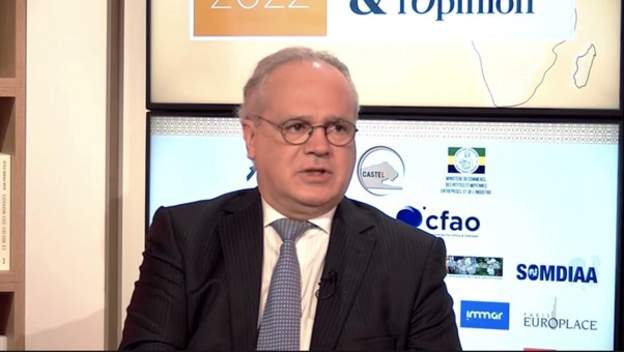“Diplomatic Tensions Escalate: French Ambassador Departs Niger Amidst Growing Controversy”
French Ambassador to Niger, Sylvain Itté, has officially concluded his diplomatic mission in the Republic of Niger. On a quiet morning in Yamai, the capital of Niger, Ambassador Itté bid farewell to the nation and embarked on his journey back to France.
His departure from the African continent took place via Ndjamena, Chad, where he caught a flight back to his home country.
This significant exit comes after a month of heightened diplomatic tensions between France and Niger. The Republic of Niger’s Ministry of Foreign Affairs had issued a stern ultimatum to Ambassador Itté, granting him just two days to vacate the nation’s territory.
This ultimatum followed the ambassador’s refusal to engage in talks with the country’s military leaders, who seized control of the government in July, toppling President Mohamed Bazoum.
It is noteworthy that President Bazoum and his family remain under military custody within the confines of the presidential palace.
This ongoing situation has stirred controversy both within Niger and on the international stage, drawing attention to the complex history between Niger and its former colonial power, France.
Historically, Niger was one of the African nations subjected to French colonization, and the presence of approximately 1,500 French soldiers in the country further underscores the intricate ties between the two nations. However, amidst these developments, President Emmanuel Macron of France has made a significant announcement.
He declared the impending withdrawal of French troops from Niger by the close of the current year, signifying a significant shift in the relationship between the two countries.
The departure of Ambassador Sylvain Itté serves as a tangible symbol of this evolving diplomatic landscape, which is marked by a reevaluation of France’s presence in Niger and the wider region.
It also raises questions about the future of diplomatic relations between France and Niger, as both nations navigate the complex challenges of post-colonial politics and security in the African continent.
